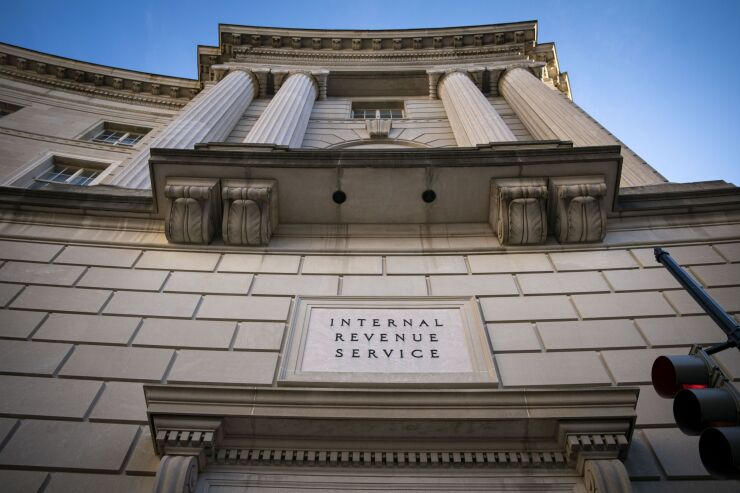The Internal Revenue Service on Friday postponed the introduction of a $600 threshold for filing a Form 1099-K to report on transactions involving services such as eBay, PayPal, Venmo, Etsy and third-party settlement organizations, which was scheduled to take effect in the New Year and generate millions of new forms going out to unsuspecting taxpayers and their accountants.
Organizations such as the American Institute of CPAs, the National Association of Tax Professionals, the National Taxpayers Union and others had been sounding warnings about the lower threshold, which was down from $20,000 previously. It was included as part of the American Rescue Plan Act of 2021 as a way to raise extra tax revenue, and lawmakers in Congress were lobbied heavily to forestall the change or at least raise the threshold.
As a result of the delay, the IRS said third-party settlement organizations won't be required to report tax year 2022 transactions on a Form 1099-K to the IRS or the payee for the lower, $600 threshold amount. In tandem with the announcement, the IRS released guidance Friday stating that calendar year 2022 will now be a transition period for implementation of the lowered threshold reporting for third-party settlement organizations including Venmo, PayPal and CashApp that would have generated Form 1099-Ks for taxpayers.

"The IRS and Treasury heard a number of concerns regarding the timeline of implementation of these changes under the American Rescue Plan," said acting IRS commissioner Doug O'Donnell in a statement. "To help smooth the transition and ensure clarity for taxpayers, tax professionals and industry, the IRS will delay implementation of the 1099-K changes. The additional time will help reduce confusion during the upcoming 2023 tax filing season and provide more time for taxpayers to prepare and understand the new reporting requirements."
The American Rescue Plan Act lowered the reporting threshold for third-party settlement organizations to $600 per year from the earlier threshold of more than 200 transactions per year, exceeding an aggregate amount of $20,000. The law doesn't aim to track personal transactions such as sharing the cost of a car ride or meal, birthday or holiday gifts, or paying a family member or another for a household bill.
Under the law, beginning Jan. 1, 2023, organizations were required to report third-party network transactions paid in 2022 with any participating payee that exceed a minimum threshold of $600 in aggregate payments, regardless of the number of transactions. Third-party settlement organizations report these transactions by providing individual payees a
The transition period described in
The change under the law is especially significant because tax compliance is higher when amounts are subject to information reporting, like the Form 1099-K. However, the IRS said it must be managed carefully to help ensure 1099-Ks are only issued to taxpayers who should receive them. On top of that, it's important for taxpayers to understand what to do in response to this reporting, and tax preparers and software providers will have the information they need to help taxpayers.
The IRS promised more details on the delay will be available in the near future along with information to help taxpayers and the industry. For taxpayers who may have already received a 1099-K as a result of the statutory changes, the service said it's working rapidly to provide instructions and clarity so taxpayers know what to do.
The IRS added that the existing 1099-K reporting threshold of $20,000 in payments from over 200 transactions will stay in effect.





